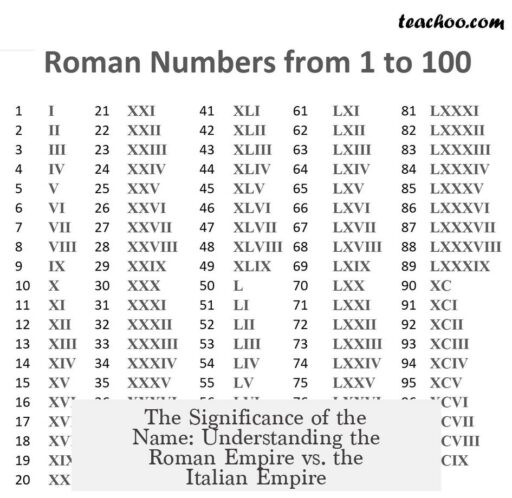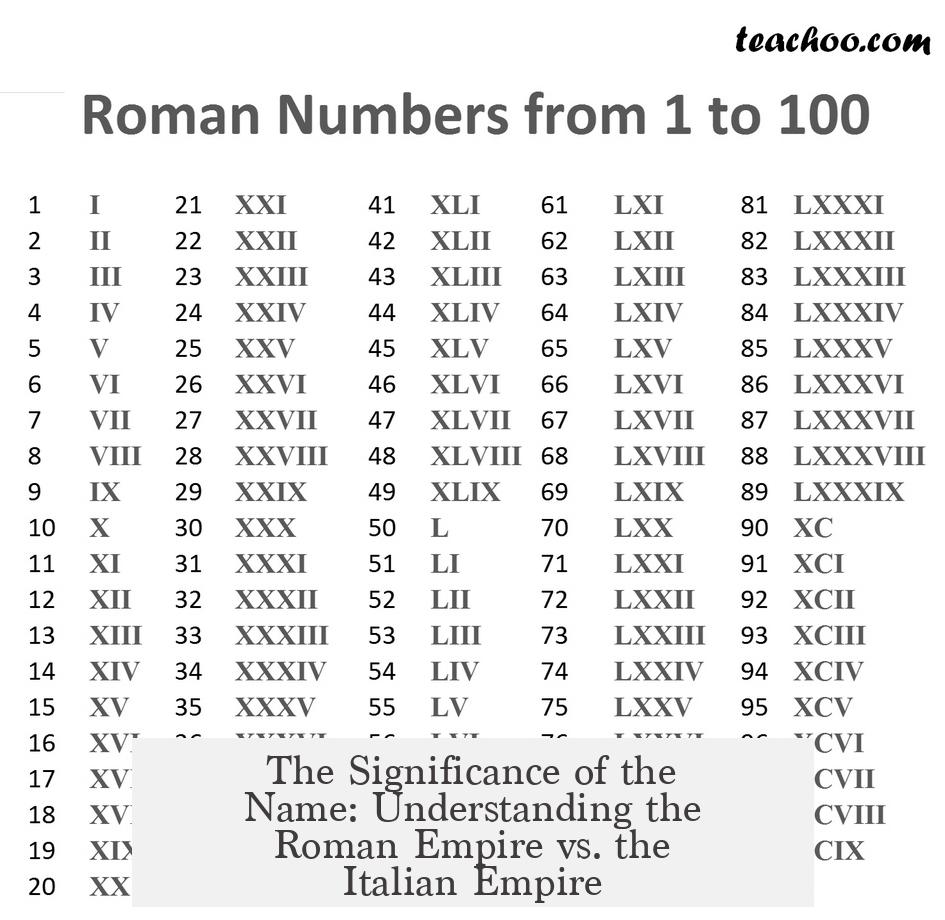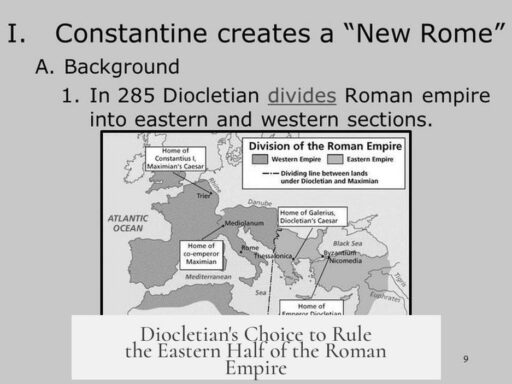The Roman Empire is named after Rome, its founding city-state, rather than Italy, because Rome’s identity, authority, and culture originated from a distinct city, not a unified Italian nation. Italy was a fragmented region without political or ethnic unity during Rome’s rise.
Rome begins as a city-state, centered on the city of Rome itself. Early Roman identity relies on blood ties, language, and citizenship rooted in Rome, not the broader Italian peninsula. While Italy consisted of various peoples, including indigenous tribes and Greek colonies, it lacked a common political structure or unified ethnic identity. Rome’s early expansion involved conquering and assimilating neighboring regions rather than uniting a pre-existing nation.
As Rome conquered Italy, the conquered populations gradually adopted Roman culture, language, and lifestyle. This process created a Romanized Italian population. The territories became Roman in spirit rather than Rome transforming into Italian. Hence, the empire reflects Rome’s cultural and political dominance, not Italy’s geography.
Rome’s legitimacy rests on its military strength, governance, and cultural superiority. Italy was simply a geographical description, not a political or cultural identity valued by the Romans. The idea of Italy as a unified nation-state only emerged in the 19th century, centuries after Rome’s empire dissolved.
Historical examples show many empires naming themselves after their founding cities or rulers — like the Venetian Empire or the Seleucid Empire — illustrating that city-based identities can form the basis for empire names. Rome was not just a city; it was a small country with Rome as its capital, serving as the epicenter of its growing empire.
- Rome began as an independent city-state with its own culture and identity.
- Italy was fragmented, lacking political unity and a common ethnic identity in Roman times.
- Rome conquered and Romanized Italy, molding it into part of its empire.
- Rome’s name symbolized cultural and political dominance, not Italy’s geography.
- Italy became a nation-state only in 1861, long after Rome’s empire.
Why is it the “Roman” Empire and not the “Italian” Empire?
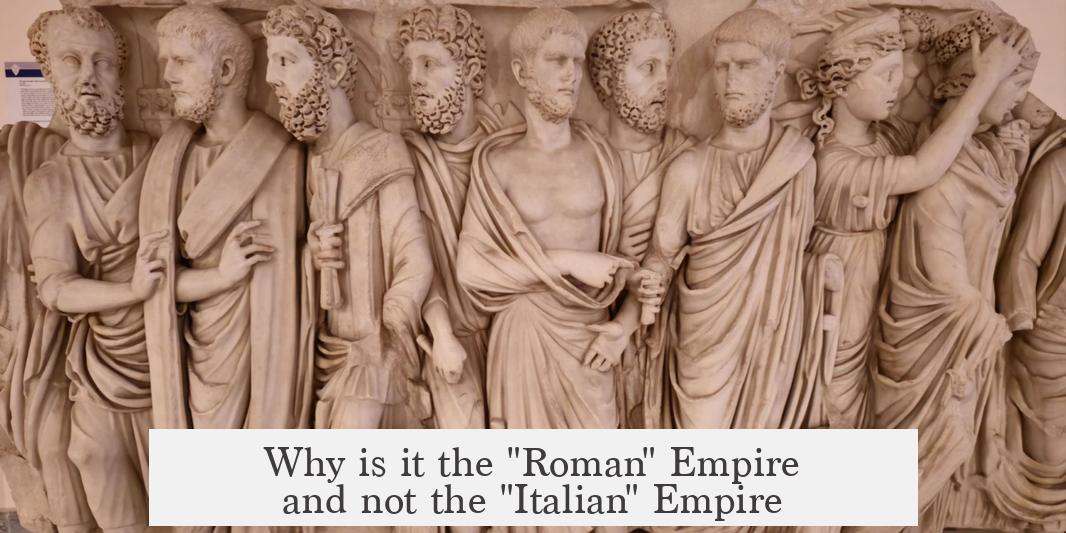
Simply put, the Empire is “Roman” because Rome was a distinct city-state with its own identity long before Italy became a nation. The idea of “Italy” as a unified state didn’t even exist until the 19th century. But let’s unpack this because it’s far more than just a quirk of historical naming.
Imagine a single city growing from a small river town on the Tiber into a powerhouse shaping the world. That city is Rome—the fount of what would become one of history’s greatest empires. Rome started not as a country, not as a part of a nation, but as a city-state. Think of it as a startup, with its own culture, identity, and ambitions, not yet part of a bigger national conglomerate.
Back in the day, what we now call Italy was a patchwork quilt of diverse peoples—indigenous tribes, Greeks in the south, Etruscans, and other groups, each with their own customs and lack of a shared political unity. There was no Italian nation to speak of. The idea of Italy as a political or ethnic whole was as fuzzy as a cloud.
So, what did it mean to be Roman at the dawn of Rome’s greatness? It meant more than just living in the city or living in Italy’s boot-shaped peninsula. Roman identity was a mixture of bloodlines, culture, language, and citizenship—a special social club with strict entry rules. You either *were* Roman or you weren’t. This gave Rome a strong, cohesive identity that united its citizens.
When Rome began conquering the rest of the Italian peninsula, it didn’t merge with a pre-existing country called Italy—it conquered a mess of independent regions and city-states. Unlike Otto von Bismarck, who cleverly united German-speaking peoples into one Germany centuries later, Rome wasn’t uniting a nation; Rome was absorbing territories and peoples under its rule.
Here’s a crucial detail: as the Romans spread their influence over Italy’s cities and regions, it was the *other way around*—Italy became Roman in mind and culture. The sentence “Rome did not become Italian; Italy became Roman” perfectly sums this up. The conquered peoples didn’t make Rome more like them; they adopted Roman ways instead.
Rome’s Legitimacy Was Not Based on Geography
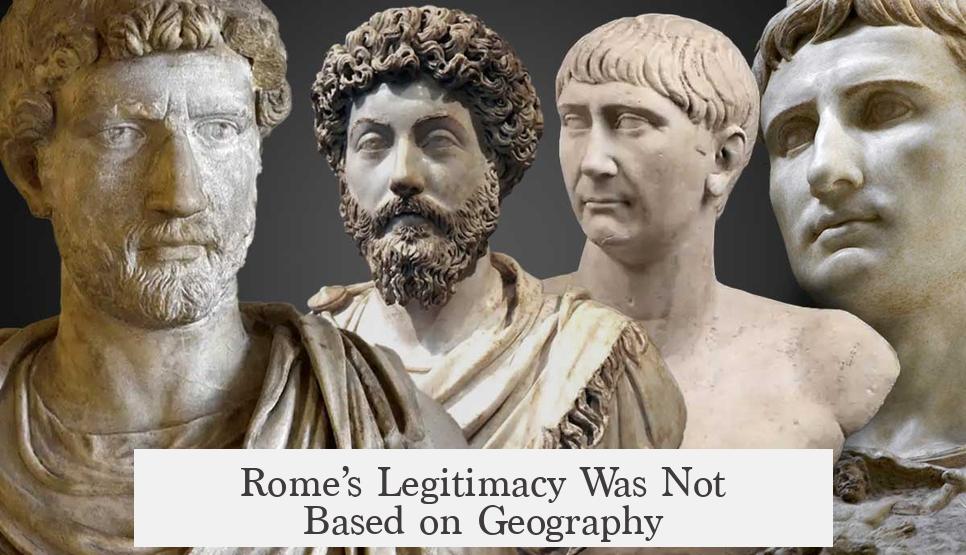
Another interesting fact: the Romans didn’t think of Italy as some unified homeland. Italy was just a geographical area to them. They didn’t need Italy to legitimize their empire. Their legitimacy came from being better at military tactics, smarter in governance, more refined in culture and language than the peoples they conquered. In other words, they earned their power by outperforming others, not by claiming to represent a national identity like “Italy.”
Imagine if New York City conquered the entire United States and called the resulting empire the “Empire of New York.” That’s closer to how Rome operated. Rome wasn’t just a city; it was the capital of a tiny but powerful country named—surprisingly—Rome itself.
Why Didn’t They Call It “Italian”? Because Italy Did Not Exist Yet!
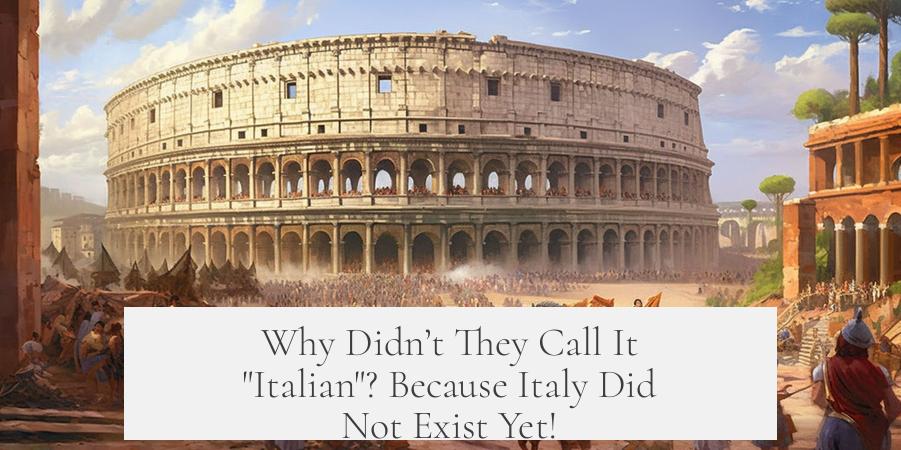
Italy as a modern nation-state didn’t start to form until the 1860s—in fact, the nation of Italy came into being officially in 1861. Prior to that, the peninsula was a fragmented collection of city-states and territories, each functionally independent. Calling the empire “Italian” would be an anachronism.
Here’s a fun historical twist: many empires arose from city-states or small regions—think of the Venetian Empire or the Athenian Empire. Even the Tsardom of Muscovy and the Portuguese Empire came from strong cities or small regions that expanded outwards. The Roman Empire fits this pattern but with an unmatched scale and cultural influence.
It’s fascinating that Rome was more than just a city with walls. By early historical accounts, Rome was a “country”—a relatively small but distinct political entity with its capital city named after itself. Gradually, that country expanded, taking over vast lands and diverse peoples. Thus, the name “Roman Empire” signals the empire’s cultural and political roots rather than modern geographic realities.
How Has This Shaped Our World Today?
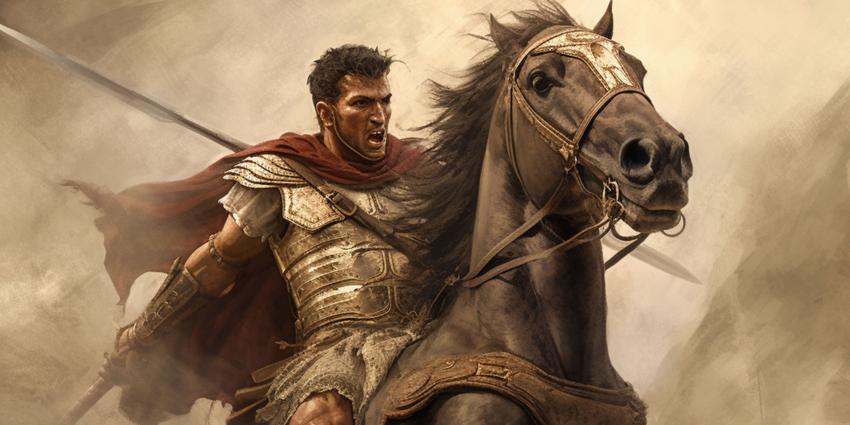
Modern Italy’s identity is heavily influenced by the ancient Roman legacy, but it’s essential to remember that they are not the same thing. Rome’s empire laid the groundwork for law, architecture, language, government, and many things we still recognize today, yet these marvels originate from the city and its distinctive culture, not from a country called Italy.
When you hear “Roman Empire,” you’re hearing about a specific political and cultural formation that began as a city-state’s expansion. If history had followed a different script, we might be studying the “City-State of Rome Empire” or some other name—but thankfully (or unfortunately), “Roman” stuck because it captured the essence of the power and identity birthed from that one city.
In Conclusion: The Empire’s Name Tells Its Story
To sum up, the Roman Empire is called “Roman” and not “Italian” because Rome was a distinct city-state with a unique, dominating culture long before Italy existed as a nation. Italy was a mere geographic term, a patchwork of peoples, with no political or ethnic unity to inspire a national empire name. Rome’s identity was forged in blood, culture, and citizenship, and it was Rome conquering Italy, not Italy uniting Rome.
“Rome did not become Italian; Italy became Roman.” Who knew conquest could be such a cultural makeover?
So next time you hear about the Roman Empire, remember it’s not just about geography—it’s about identity, culture, and power springing from one legendary city that rose to rule much of the ancient world.
Why is the Roman Empire named after Rome and not Italy?
Rome began as a city-state, not a nation. Italy was a mix of different peoples and lands. Rome’s identity was tied to its city, culture, and citizens. As Rome conquered, these lands became Roman in culture, not the other way around.
Did Italy exist as a country when the Roman Empire rose?
No. Italy was not a unified nation until the 1860s. Before then, it was a collection of city-states and regions. The Roman Empire grew from Rome itself, not from a united Italy.
How did Rome’s identity differ from the idea of Italy?
Being Roman was about blood, culture, language, and citizenship. Italy was just a geographical term. Rome’s power was based on military and cultural strength, rather than on the concept of an Italian nation.
Why didn’t the Roman Empire become called the Italian Empire?
Rome saw itself as superior and distinct. It conquered and absorbed Italy’s regions into Roman culture. Italy became Roman in mindset; Rome never became “Italian.” The name reflected this cultural dominance.
Are there other examples of empires named after cities?
Yes. Many empires were named after their founding cities, like the Venetian Empire and the Athenian Empire. Rome was similar, starting as a city and expanding its reach while keeping its name.
